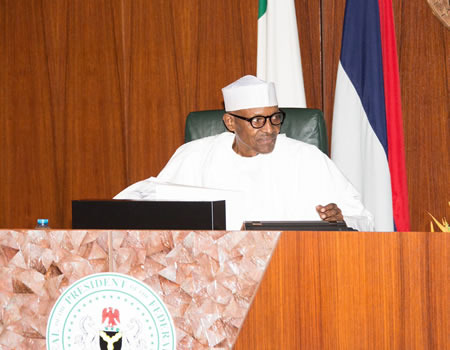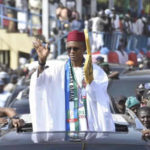Following the disclosure by the Nigeria Bureau of Statistics (NBS) in its Capital Importation report for Q3’18 that foreign investment into Nigeria fell by 48 per cent, quarter-on-quarter, the third quarter of the year to $2.9 billion over political uncertainty and other issues, the federal government has assured that there is no cause to worry.
Minister of Budget and National Planning, Udoma Udoma, in a reaction to the increasing apathy of foreign portfolio investors to the nation’s financial markets, told State House correspondents after the meeting of the Federal Executive Council (FEC) on Wednesday that government was working with investors to allay their fears.
He, however, noted that it was not unusual for investors to develop cold feet around election time as the case was not peculiar to Nigeria.
Asked to clarify the NBS report, he said: “With respect to the reduction in investments in portfolio flows, actually, that is not so much of investment, that is a phenomenon in most developing countries at the moment because when interest rates are increased, when U.S. interest rates are increased, there is a flow of money towards the U.S.
“So, it is a phenomenon which is not just a Nigerian phenomenon.
“With respect to building up to an election, not only in Nigeria. In the build-up to elections, people are usually cautious in terms of… that is normal.
“In the build-up to any electron, investors tend to be a little cautious. But we have some extensive work with investors assuring them that there is no need to be cautious.”
Briefing on the outcome of the FEC presided over by President Muhammadu Buhari, Udoma said that the council considered the NBS report on Gross Domestic Product (GDP) saying: “Today I reported to the FEC we have seen steady recovery from the recession period the report indicates that the economy, when measured by real GDP, grew at 1.81percent in the 3rd quarter 2018, compared to 1.5 per cent in the 2nd quarter of 2018.
“The FEC was particularly encouraged to note that economic growth continues to be driven by the non-oil sector which grew by 3.32percent in the 3rd quarter.
“This has been the strongest growth in non-oil GDP in twelve consecutive quarters since the fourth quarter of 2015.
ALSO READ: Electoral Act amendment: Override Buhari now
“By economic activity, non-oil growth was driven by transportation, electricity, telecommunication, metal oils, quarry and so on. In addition, agriculture and manufacturing sectors also grew, agriculture by 1.91percent manufacturing by 1.92percent these are stronger growth than in the 2nd quarter.
“So overall, the council was most encouraged that these results show improvement in the economy, it also shows that our plans are working, it equally shows that we need to diversify our economy and keep fit with our reforms through continuous implementation of the ERGP in order to continue to attract investments and set the economy on a more sustainable inclusive growth trajectory and council is encouraged by this and believes we should be able to do even better in the 4th quarter.”
The minister explained that the delay in the presentation of the 2019 Budget proposal was because the executive was yet to get a date from the National Assembly.
He said the President is ready to present the budget any day the lawmakers are ready.
The minister added: “As you already know, the budget is ready. We are liaising with the National Assembly because they are to give us a date. If they say today, we will go. The budget is ready.”
Also speaking, the Minister of Transportation, Rotimi Amaechi, said that FEC approved $2.995 million towards enhancing the security of the maritime sector.
He said rather than award the contract to local ex-Niger Delta militants as was the case under the previous dispensation, the government awarded it to regular firms.
The council had a valedictory session for the Minister of Environment, Ibrahim Jibrin.
Jibrin resigned from the federal cabinet after being appointed the emir of Nasarawa.






